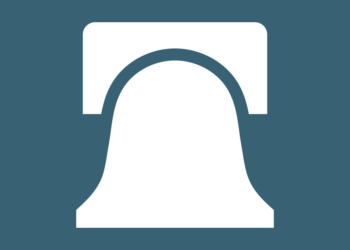from the no-cybercrime,-no-treaty dept
The US attended the UN Cybercrime Treaty signing ceremony in Hanoi this weekend, where 72 countries signed on to a Russia-backed framework for global surveillance cooperation. Whether the US actually puts pen to paper (and all the reporting on this is kind of cagey) is almost beside the point—by showing up and legitimizing the proceeding, what the Biden administration last year blessed with “we’ll fix it from within” is now in the hands of the Trump administration. You know, the one that views criticism as crime and governmental power as something to maximize, not constrain. What could go wrong?
The Russian-initiated treaty, which we’ve warned about multiple times over the past few years, creates a framework for cross-border law enforcement “cooperation” on “cybercrime” that’s defined so broadly it could cover basically any activity a government doesn’t like that happens to involve a computer.
As The Record notes, despite widespread concerns raised by plenty of people, the Biden administration felt it made more sense to sign onto this agreement in order to be able to fix it from within later:
The White House later told reporters they felt they had to back the treaty now in order to make changes to it later and shape how it was implemented globally. They also said it would likely expand the number of countries that will respond to warrants issued by the U.S. related to cybercrime.
That’s… optimistic. And also completely backwards.
That reasoning might work for a trade agreement where you’re negotiating tariff rates or dispute resolution procedures. But when the treaty is about creating a legal framework that explicitly empowers any government to demand data on anyone accused of a “serious crime” under their domestic law, you can’t shape your way out of that. The mechanism itself is the problem.
You don’t fix a fundamentally broken treaty by signing it and hoping to shape implementation later. That’s not how it works. Once you’ve given your stamp of approval to a Russia-backed surveillance framework, you’ve already lost the game. The “we’ll fix it later” approach might have made some sense when there was at least a theoretical chance the US would push back against abuse. But now we’re handing these powers to an administration that has made clear it views any criticism as an attack, any dissent as a threat, and any check on its power as illegitimate.
As Human Rights Watch and dozens of other organizations warned in a joint statement released Friday:
We, the undersigned organizations, remain deeply concerned that the UN Convention Against Cybercrime (UNCC) will facilitate human rights abuses across borders. As some states head to Hanoi for the UNCC signing ceremony from October 25-26, we urge them to refrain from signing and ratifying the treaty and to use the occasion to highlight the importance of safeguarding human rights when implementing this Convention.
The problems with this treaty are extensive and we’ve covered them before, but they’re worth repeating given that they’re now officially going into effect. As Human Rights Watch details:
The Convention will obligate governments to collect electronic evidence and share it with foreign authorities for any “serious crime,” defined as an offense punishable by at least four years of imprisonment under domestic law. Many governments criminalize activities protected by international human rights law and impose sentences that would make them “serious offenses” under this framework, such as criticism of the government, peaceful protest, same-sex relationships, investigative journalism, and whistleblowing.
Think about that for a second (or more, because the more you think about it, the worse it seems). In Thailand, criticizing the king can get you fifteen years. In Russia, criticizing the invasion of Ukraine is considered “violence against police” or “incitement of hatred.” Under this treaty, those become legitimate grounds for demanding data from US companies about US users. And the safeguards against this? Basically non-existent.
The treaty does include some language about respecting human rights in Article 6, but as we’ve noted before, it’s incredibly weak. It essentially says states should implement the treaty “consistent with their obligations under international human rights law” and that nothing in the treaty should be interpreted as “permitting suppression of human rights.”
Great. Except every authoritarian government on earth claims their repressive laws are consistent with human rights. They just have a different interpretation of what those rights mean and when they can be restricted. Thailand says its lèse-majesté law protects “public security.” Russia says its laws against criticizing the military are necessary to protect national defense. Saudi Arabia’s laws against “defaming” the government are framed as protecting social stability.
The treaty’s language does nothing to stop any of this. It’s a permission slip, not a constraint.
And the Biden administration knew this last year. As The Record notes, the current State Department said it is “still reviewing the treaty” when asked whether the US will be among the first to ratify it. Which raises the obvious question: if you’re still reviewing whether it’s safe to ratify, why the hell did you join the signing ceremony?
Trump and his administration have already admitted to taking away freedom of speech, threatened government retaliation against comedians for jokes, filed bogus criminal cases against critics, and denied the reality of nationwide protests while posting videos attacking protesters. It has made clear it views any form of dissent or criticism as fundamentally illegitimate and criminal.
Now add a treaty that allows foreign governments to request surveillance data on anyone accused of a “serious crime” under their domestic law. And remember: the US appears to be supporting this framework. We’re telling the world that this is legitimate international cooperation.
So when Viktor Orban’s Hungary decides that criticizing the government is a serious crime worthy of five years imprisonment, or when India decides that reporting on government corruption qualifies as sedition, or when any of dozens of increasingly authoritarian governments decide they want to track down dissidents who happen to use American tech platforms—they now have a treaty-backed framework to request that data.
And what’s the Trump administration going to do? Push back on behalf of journalists and activists? Defend the principle that criticism of government shouldn’t be treated as a crime? Please.
The Human Rights Watch statement is particularly pointed about the location of the signing ceremony:
The signing ceremony in Hanoi is taking place against the backdrop of an intensified crackdown by the Vietnamese government on dissent to punish people simply for raising concerns or complaints about government policies or local officials, including online.
So countries are literally signing a surveillance treaty in a country that’s actively cracking down on online dissent.
The organizations opposing the treaty also make clear what should have been obvious from the start: you can’t fix this by signing it and hoping for the best. They urge states that are considering signing to withhold support unless they can guarantee meaningful safeguards will prevent abuse in practice.
States should refuse to sign or ratify the Convention. States that have already committed to signing should adopt concrete human rights safeguards and demonstrate how these enable them to implement the Convention’s terms in a manner that fully respects human rights.
Rights-respecting states that are considering signing the UNCC despite the significant threat it poses to human rights should withhold their support unless and until they can guarantee that certain conditions are in place, namely that they and other signatories will implement the treaty with meaningful safeguards and other legal protections that will prevent human rights abuses in practice.
And they lay out what those safeguards would need to include: extensive stakeholder consultation, national frameworks that meet international human rights standards, formal reservations to ensure dual criminality requirements, transparency into implementation, and making human rights compliance a prerequisite for any funding or capacity building.
None of that is in place. None of it is even being seriously discussed. Having the Biden administration bless this approach last year, and now the Trump admin show up to the signing ceremony basically takes away any and all leverage.
There is no “later” for shaping implementation when you’ve already legitimized the framework. And there’s definitely no hope of the Trump administration using this treaty responsibly when they’ve made clear they view governmental power as something to be maximized, not constrained.
The treaty required only 40 ratifications to enter into force, and it received 72, which sets off a 90-day clock until the treaty is official. In a better world, the US would make clear it will not be among those to sign or ratify the treaty. In theory, it still could. As various reports note, many of the big American tech companies also opposed this treaty.
Now would be a good time for the likes of Mark Zuckerberg, Elon Musk, or Marc Andreessen to use some of their connections with Trump to suggest he goes in another direction. But that seems unlikely.
The Biden administration fucked this up big time last year by coming out in support of this treaty with a “we’ll help fix it from within later” approach. That we’re now having to hope someone convinces Trump to push back on it is less than ideal.
This treaty is damaging and dangerous. The Biden administration gave it its initial blessing, and now the Trump administration is poised to help the world’s worst authoritarians abuse it.
Filed Under: biden administration, cybercrime, cybercrime treaty, donald trump, joe biden, russia, surveillance, trump administration, un, us













